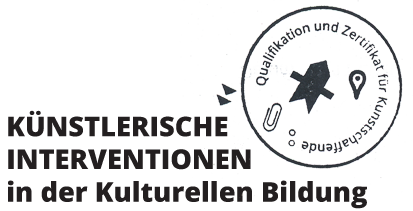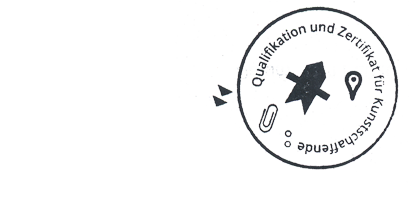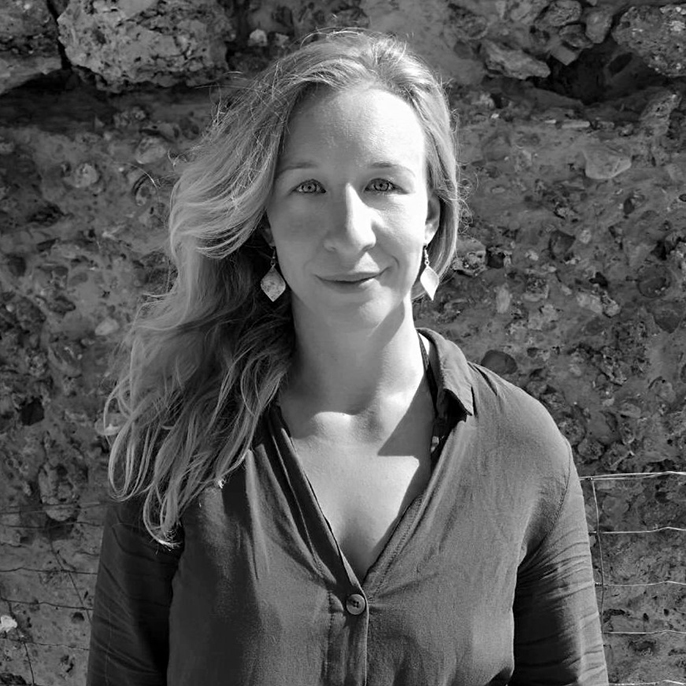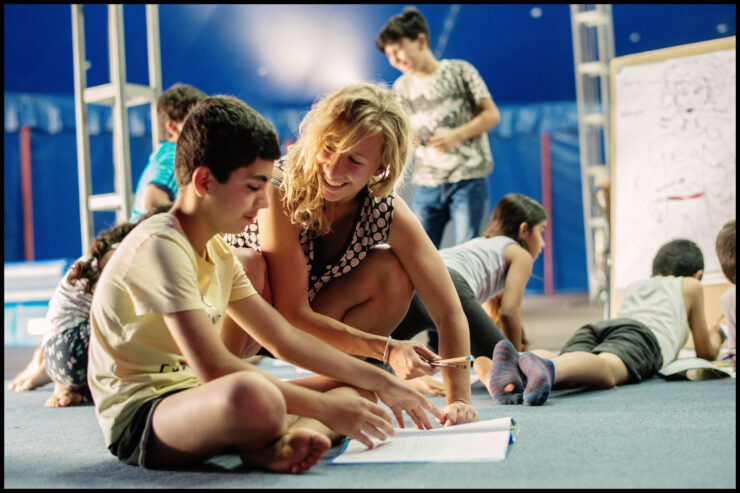



Rebekka E. Böhme has been working as a freelance dancer and choreographer with artists in various fields as well as with choreographers and companies in the fields, among others, of dancing, drama, audio-visual performance (Volksbühne Berlin, performing group, Alexrandra Rauh and others). She creates her own dance performances which can be viewed not only in classic stage settings but also as experimental dancing films which are also presented internationally. In addition, Böhme teaches contemporary dancing, bungee dancing and various circus disciplines – and regularly develops artistic activities with children and youths. She is involved in several cultural education projects, draws up concepts for “Kulturtage” (cultural event days) and “Trash Dance Contests”, and coordinates a wide range of events.
Rebekka E. Böhme has been working as a freelance dancer and choreographer with artists in various fields as well as with choreographers and companies in the fields, among others, of dancing, drama, audio-visual performance (Volksbühne Berlin, performing group, Alexrandra Rauh and others). She creates her own dance performances which can be viewed not only in classic stage settings but also as experimental dancing films which are also presented internationally. In addition, Böhme teaches contemporary dancing, bungee dancing and various circus disciplines – and regularly develops artistic activities with children and youths. She is involved in several cultural education projects, draws up concepts for “Kulturtage” (cultural event days) and “Trash Dance Contests”, and coordinates a wide range of events.
Circus and language, 2016

In 2016, in cooperation with the German Children and Youth Foundation and Circus Cabuwazi (Project Beyond Borders), I developed a circus language promotion project for children from refugee families which imparts language in a playful manner centring on physical motion. The ten-day format aims at boosting both community and individuality, and provides the opportunity to learn and use the German language in an unbiased way. The children’s habitat is turned into a colourful space for development in which they can try out various circus disciplines, make circus props, explore words and their meanings in an artistic way and prepare a circus show together.
What have you taken home from this project for your artistic activities?
Working with language and abstraction has often been part of my research on motion or a method to experiment with motion qualities and rhythms. Trying things out and playing with children gives me new ideas and refreshes my perception of my own practices. In the project weeks, I often worked with clownesque exercises and noticed how they became drivers of de-escalation and promoted mutual awareness and understanding. Tangible artistic energy in a project is taken on further, and new, creative impulses emerge.
Which topic turns up again and again in your artistic activities?
My artistic work often focuses on perceiving and experiencing. I am interested in what attitudes emotions or, also, misunderstandings subjective impressions and experiences can stimulate and how internal conditions move us to form and change our body. I want to know what is concealed behind what is visible. The aim of my work is create understanding and dispel appraisals and stigmatisations which a perception of “weird” modes of behaviour and seeming otherness can lead to.
What do you seek to achieve with your arts education activities?
I would like to enable people to adopt a creative approach to various topics and encourage them to consciously perceive the environment, change their perspectives and discover something new. My work focuses on exploring one’s own thoughts and creativity, as well as on identifying individual peculiarities and facets of movement or other abilities. For me, it is important to create an environment in which understanding and participating as well as learning from one another is possible across boundaries in order to promote self-confidence and respectful action.
What, in your view, is the essence of an artistic intervention in arts education?
To me, artistic interventions in arts education is an attempt to shift notions and an invitation to (re-) discover or (re-) interpret the environment with the aid of aesthetic means and designing methods which are above all made accessible and understandable. The artistic experience brought about by one’s own creative experimenting promotes personal development, strengthens self-confidence and motivates individuals to take on challenges more open-mindedly.